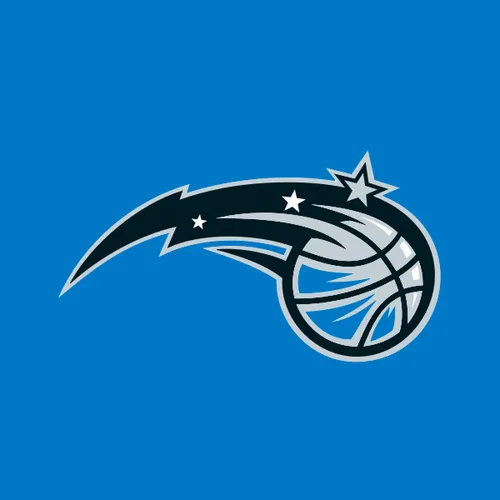







Communications & Marketing Jobs in the Sports Industry: The Ultimate Quick Guide

Introduction
The sports industry is an exciting and dynamic sector that offers a wide range of opportunities for professionals with a passion for sports and strong communication skills. Communications and marketing roles are particularly vital in this industry, as they help build and maintain the reputation, image, and fan base of sports teams, leagues, and organizations. In this article, we will explore various communications and marketing jobs in the sports industry, including Community Relations, Marketing, Public Relations, and Social Media. We'll discuss their key responsibilities, qualifications, and skills needed to succeed in these roles, providing valuable insights for those interested in pursuing a career in this exciting field.
Community Relations: Building Strong Connections with Fans and Communities
Community Relations professionals in the sports industry play a critical role in fostering positive relationships between teams, athletes, and the communities they serve. They collaborate with local organizations, create community-focused initiatives, and manage charitable events to strengthen the bond between sports teams and their fans.
To succeed in community relations, strong interpersonal skills, an understanding of the local community's culture, and the ability to communicate effectively are essential. A background in public relations, marketing, or event planning can be beneficial for those seeking a career in this area.
Dive deeper into community relations in sports here and see community relations vacancies here.
Marketing: Promoting Teams, Athletes, and Events
Sports marketing professionals are responsible for promoting teams, athletes, and events, ultimately driving ticket sales, sponsorships, and merchandise revenue. They develop marketing campaigns, oversee advertising efforts, and manage partnerships with sponsors and other stakeholders.
A successful sports marketing career requires creativity, strategic thinking, and a deep understanding of the sports industry. A degree in marketing, sports management, or a related field can help you gain the necessary skills and knowledge for this role.
Read more about sports marketing careers here and see marketing job opportunities here.
Public Relations (PR): Managing the Public Image of Sports Teams and Athletes
PR professionals in the sports industry are responsible for managing the public image of sports teams, athletes, and organizations. They develop and execute PR strategies, manage media relations, and handle crisis communications.
Strong writing and communication skills are essential for a career in sports PR, as well as the ability to think strategically and respond quickly to changing situations. A degree in public relations, communications, or journalism can provide a solid foundation for aspiring sports PR professionals.
Discover more about PR careers in sports here and find PR jobs in sports here.
Social Media: Engaging Fans and Building Online Communities
Social media managers in the sports industry are responsible for creating and managing the online presence of teams, athletes, and organizations. They engage fans through various social media platforms, share updates, and create content that showcases the team's personality and achievements.
To excel in sports social media, you'll need creativity, excellent communication skills, and a deep understanding of social media platforms and analytics. Many social media professionals in the sports industry have backgrounds in communications, marketing, or journalism.
Find out more about sports social media careers here and see relevant job opportunities here.
Tips for Success in Communications & Marketing Jobs in the Sports Industry:
Develop a strong foundation: Pursue a degree in a relevant field, such as marketing, communications, public relations, or sports management. This will provide you with the necessary knowledge and skills for a successful career in sports communications and marketing.
Gain practical experience: Look for internships with sports teams or organizations to gain hands-on experience and build your professional network.
Network within the industry: Attend sports industry events, join professional organizations, and engage with industry professionals on social media to expand your network and stay informed about job opportunities.
Build a strong portfolio: Showcase your work in marketing campaigns, PR strategies, or social media management to demonstrate your skills and expertise to potential employers.
Stay up-to-date with industry trends: Keep yourself informed about the latest trends and developments in sports communications and marketing, as well as the sports industry as a whole. This will help you stay competitive and adapt to the ever-changing landscape of the industry.
Understand the sports landscape: Familiarize yourself with the specific sports and leagues you are interested in working with. This knowledge will help you better tailor your marketing and communication strategies to the unique needs of each sport and fan base.
Be adaptable and open to change: The sports industry is constantly evolving, with new platforms, trends, and technologies emerging regularly. Being adaptable and open to change will help you stay ahead of the curve and continue to bring fresh ideas and approaches to your work.
Develop strong time management skills: Communications and marketing professionals in the sports industry often juggle multiple projects and deadlines. Developing strong time management skills will help you stay organized and efficient in your work, ensuring you can meet the demands of your role.
Build your personal brand: Just as you work to promote teams and athletes, it's essential to cultivate your own personal brand within the industry. Showcase your expertise, share your insights, and engage with others in the field through social media, blogging, or speaking engagements.
Emphasize teamwork and collaboration: Communications and marketing in the sports industry often involve working closely with colleagues across various departments. Fostering a collaborative approach and emphasizing teamwork will help you build strong working relationships and contribute to your team's overall success.
Conclusion
By following these tips and focusing on developing the skills necessary for success, you can build a fulfilling career in communications and marketing within the sports industry. With dedication and perseverance, you can make a significant impact on the teams, athletes, and organizations you work with, contributing to their growth and success.
In pursuing a career in communications and marketing within the sports industry, you can combine your passion for sports with your professional skills and talents. Whether you choose to focus on community relations, marketing, public relations, or social media, there are numerous opportunities to make a meaningful impact on the teams and organizations you work with. With determination, hard work, and a dedication to staying informed and adaptable, you can build a successful and fulfilling career in this exciting and dynamic field.



























